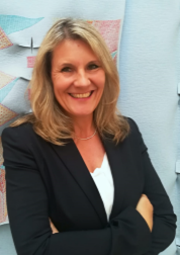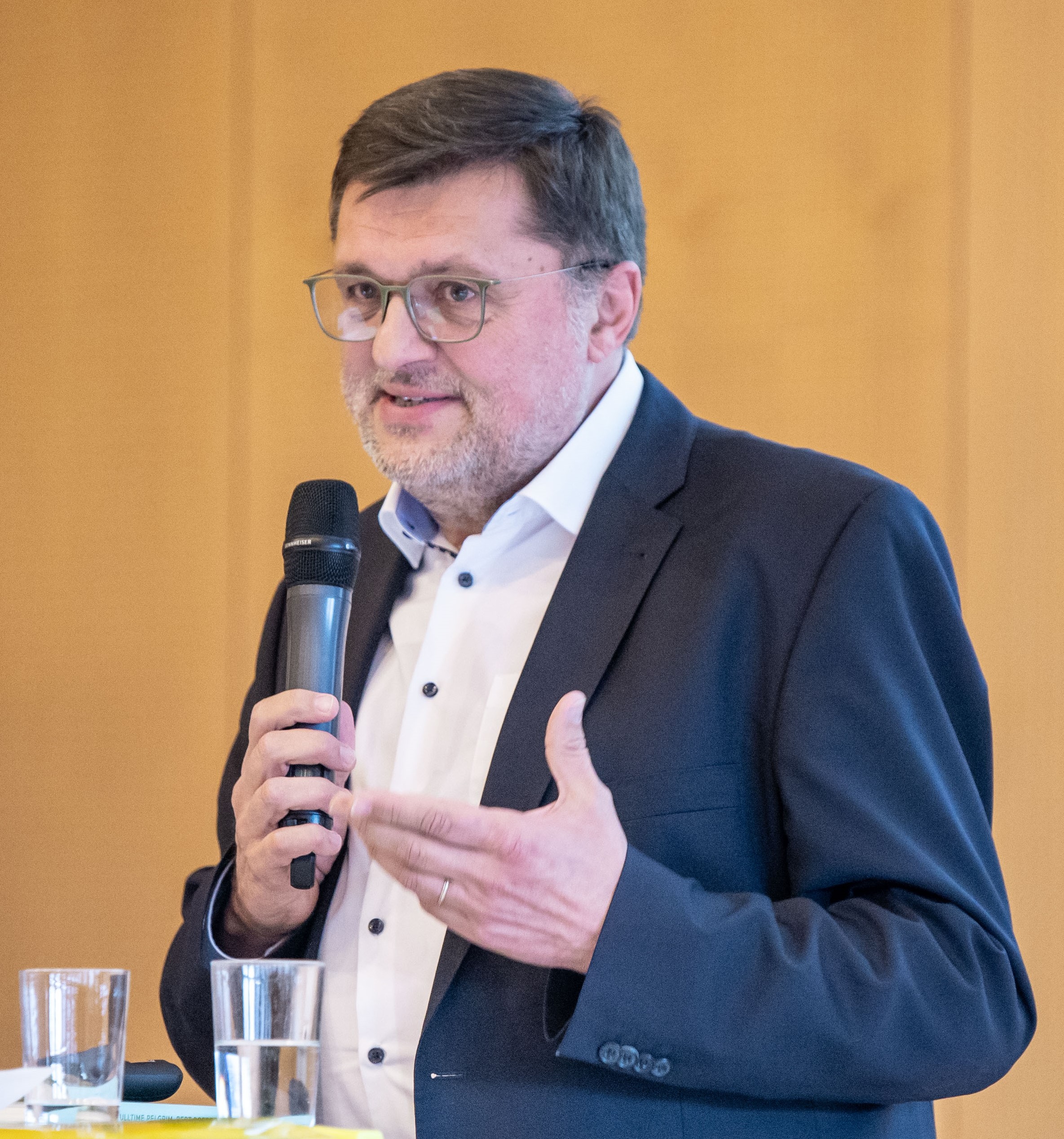Stephanie Polzhofer, EuFRES

Who am I?
My name is Stephanie Polzhofer. Before I studied Religious Education and Church Education at the Catholic University of Eichstätt-Ingolstadt, I worked as a nurse. My experiences with dying people in particular prompted me to study religious education with the aim of sowing seeds of the Good News and thus of hope through religious education. After completing my studies, I worked for over ten years as a religious education teacher at various special schools in Munich. In order to be able to react competently to the cultural and religious heterogeneity within the learning groups, I completed an additional study programme in Logotherapy and Existential Analysis at the South German Institute for Logotherapy. I was also able to complete my training as a marriage, life and family counsellor at the Institute for Communication Therapy in Munich on a part-time basis, with the aim of advising pupils and their parents in a setting outside of school. As it is very important to me to strengthen and support people in crisis situations, I have trained as a crisis counsellor at schools.
What do I do?
Since 2018, I have been working as a scientific consultant at the Religious Education Centre in Bavaria for the area of special schools. My area of responsibility includes communicating the latest scientific (religious) educational findings to teachers in a practical way (curricula, training courses, teaching materials, work aids for teachers and much more). As it is very important to me to implement the special educational approach and the corresponding knowledge and methods in the teaching practice of religious education teachers, I carry out an additional in-service qualification for religious education teachers of all school types in ecumenical cooperation. From 2019–2022, I have also taught as a lecturer at the Ludwig Maximilian University of Munich at the Chair of Religious Education and Didactics of Religious Education for primary and secondary school teachers specialising in special education. Since 2019, I have held a teaching position for religious education with special educational elements at the Catholic University of Applied Sciences Munich at the Benediktbeuern campus.
I have been a board member of EuFRES since 2024, which I am very pleased about. The religious education view beyond the state’s own borders in a good and cooperative cooperation can be found at EuFRES and it is an honour for me to be able to participate in CoGREE as a representative of EuFRES.
What do I expect from CoGREE?
I am curious to be on a common journey with the members of CoGREE. May our experiences, ideas and concepts become a constructive and powerful voice for religious education within Europe.
Bert Roebben, EFTRE

Who am I?
My name is Bert Roebben. I am Belgian, live in Leuven, happily married (to a religious education teacher), father of three adult children and meanwhile grandfather of little Marius. I studied theology and educational sciences at the Catholic University of Leuven, wrote my doctorate on a thesis on moral education, became a lecturer in Leuven (1995), later senior lecturer in Tilburg (1998) and full professor in Dortmund (2007). Since October 2017, I am the chair of religious pedagogy at the Katholisch-Theologischen Fakultät der Universität Bonn, collaborating with many inspiring colleagues and students.
What do I do?
At the 2023 conference in Rome, I was elected president of EFTRE. Previously, I held this role in the International Association for the Study of Youth Ministry and the Religious Education Association. I very much look forward to the honorable assignment in EFTRE. But it is also an enormous challenge. Europe, like the rest of the world, is in a complex tangle of global, geopolitical and socio-cultural influences. Many are wondering what direction to take with the democratic values and norms that have destined Europe since World War II. Uncertainty and chaos reign at the borders of this continent: who is in and who is out? Ambiguity also exists in the minds and hearts of people about inside and outside, about good and evil, about stagnation and progress.
What do I expect from CoGREE?
In the bosom of CoGREE, I hope to be able to share experiences with many about the European course we should take together towards a hopeful and sustainable future. The polycrisis since the pandemic has affected many, especially children and young people mentally. Do we still have a common project for the future with them? Do we still dare to make the conscious choice to hope, without losing ourselves in fundamentalism or “anything goes” – on common ground with these vulnerable young people? The fascinating connection of “Bildung” and Religion in the European educational landscape, represented by CoGREE, offers many interesting perspectives to such questions.
